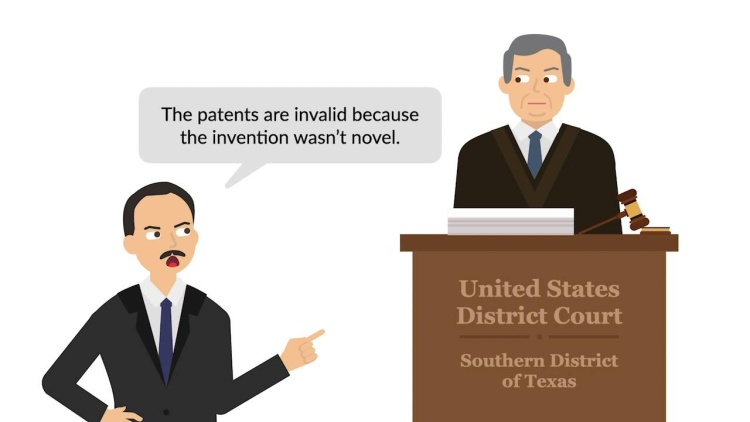Rosaire v. Baroid Sales Division
United States Court of Appeals for the Fifth Circuit
218 F.2d 72 (1955)
- Written by Samantha Arena, JD
Facts
Two patents were issued to Rosaire (plaintiff) and Horvitz for a method of prospecting for oil and other hydrocarbons, by sampling and treating soil to evolve the hydrocarbons as gas, and then measuring the amount of gas evolved from each location. Rosaire claimed that he and Horvitz invented the method in 1936. Rosaire filed suit against Baroid Sales Division (Baroid) (defendant), alleging infringement of the patents. Baroid argued that Rosaire’s patents were invalid because Abraham Teplitz and his coworkers at Gulf Oil Corporation (Gulf) knew of the same prospecting method and extensively used the method in fieldwork between 1935 and 1936, prior to Rosaire and Horvitz’s purported invention. It was established that Teplitz spent extended time on location collecting and testing samples according to the method, until a time in 1936 when Gulf suspended its gas prospecting program to allow for review of the experimental test results. Rosaire conceded that Teplitz discovered and used the method first, but contended that Rosaire was nevertheless entitled to the patents because neither Teplitz nor Gulf applied for a patent for the method until 1939, published any information on the method, or formally provided the benefit of the method or completed experimental work to the public. The trial court found Rosaire’s patents to be invalid and void. Rosaire appealed.
Rule of Law
Issue
Holding and Reasoning (Tuttle, J.)
What to do next…
Here's why 907,000 law students have relied on our case briefs:
- Written by law professors and practitioners, not other law students. 47,100 briefs, keyed to 996 casebooks. Top-notch customer support.
- The right amount of information, includes the facts, issues, rule of law, holding and reasoning, and any concurrences and dissents.
- Access in your classes, works on your mobile and tablet. Massive library of related video lessons and high quality multiple-choice questions.
- Easy to use, uniform format for every case brief. Written in plain English, not in legalese. Our briefs summarize and simplify; they don’t just repeat the court’s language.





